Large and wild-looking cats are highly desirable among the elite - but what's it like to keep one?
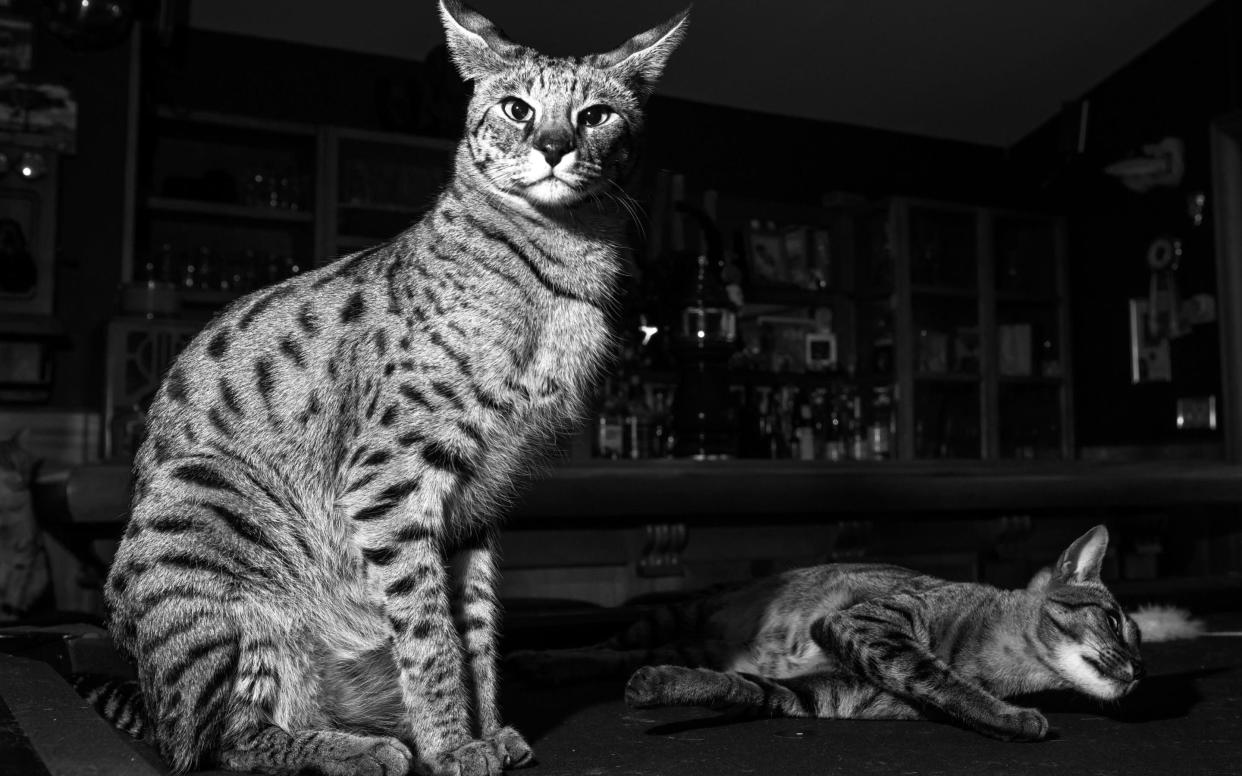
When it comes to status pets, it’s hard to top a genuine wild cat. From Salvador Dali’s ocelot ‘Babou’, to Justin Bieber’s Savannah cat double act, ‘Sushi and Tuna’, exotic felines have been wooing the rich and famous for decades.
Little wonder that demand for hybrid wild cats - bred to look beautiful on Instagram - is rising, especially for those with deep pockets. With one extra-large feline this week spotted roaming one of London’s most expensive streets, breeders expect interest from potential owners to increase.
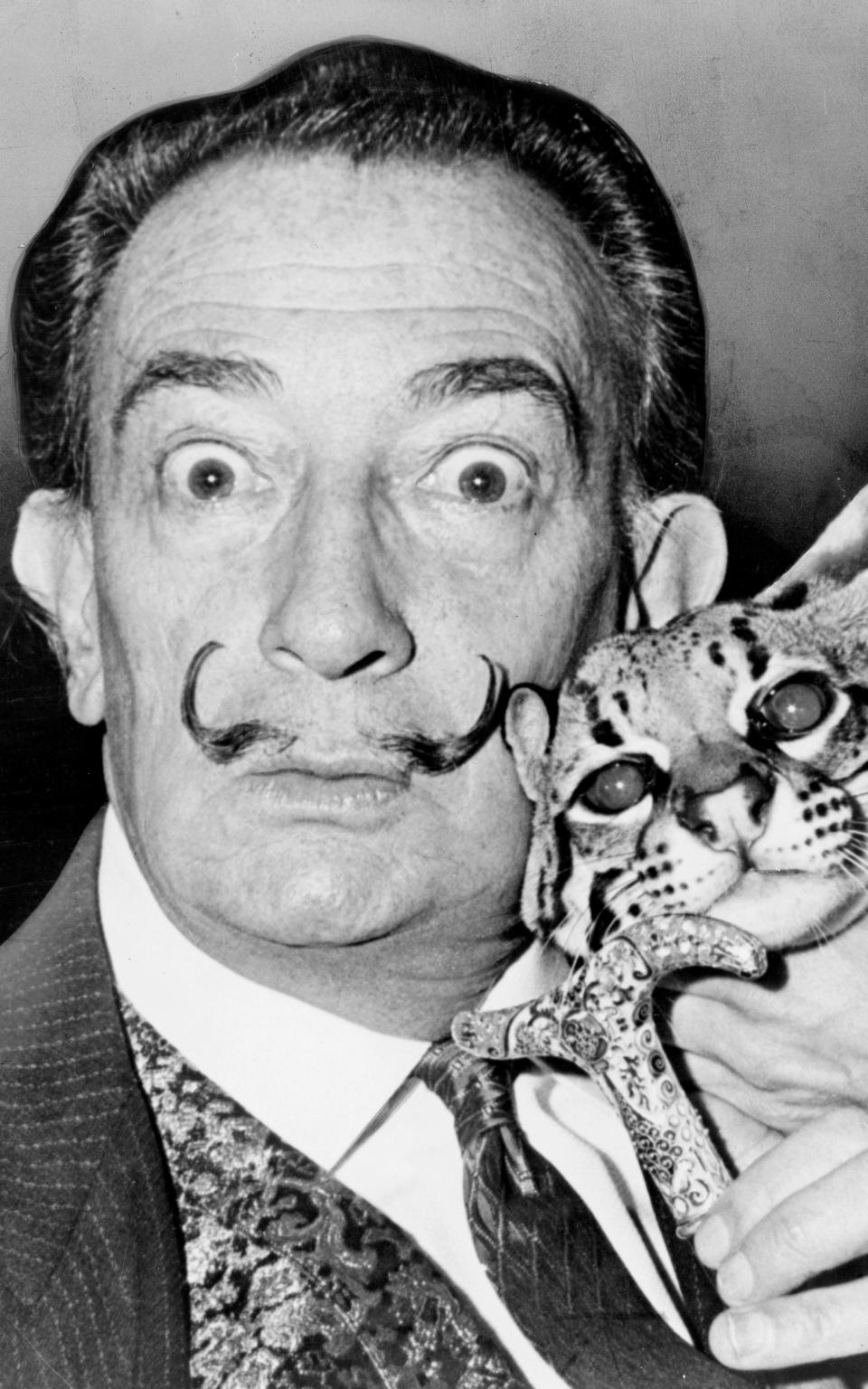
With its sleek physique and leopard-like spots, the creature in question is believed either to be a Serval, a wild African breed, or an F1 Savannah cat, the sought-after first generation offspring of a male serval and a female moggy. Armed police attempted to hunt it down, when it was spotted on Winnington Road, which backs onto Bishop’s Avenue, known locally as Billionaires’ Row due to its massive mansion, but had no luck.
Legislation classifies Servals and F1 Savannah cats as dangerous wild animals, which means owners require a licence, but as the amount of purebred Serval decreases in subsequent litters, so the restrictions relax. Plenty of other exotic pets can also be kept legally with a licence in the UK including capuchins, capybaras and lemurs. Others, such as marmoset, squirrel and titi monkeys, are not restricted by legislation.
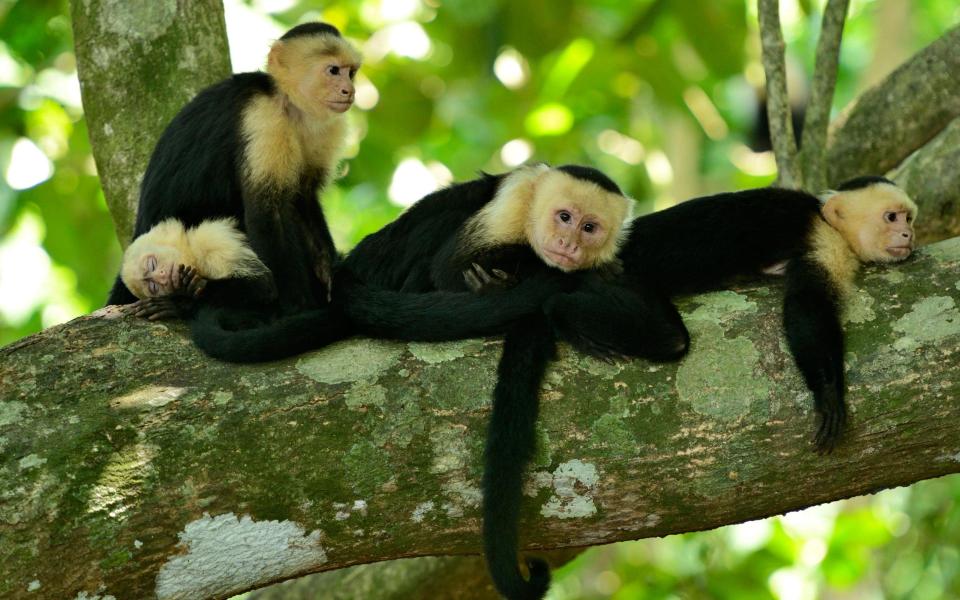
Small monkeys are particularly sought after despite being tricky to look after, says Charlie Crowther, from the Dorset-based primate ape rescue centre Monkey World. Often sold as six-week-old babies, by around six months monkeys turn territorial and aggressive, posing a danger to children and other domestic pets, she warns.
“People want an interesting, fun pet but monkeys are still wild animals,” she adds. Some try to escape; one was spotted on some scaffolding on a block of flats in east London last year. The upshot is Monkey World has around 100 unwanted pets on its waiting list, hoping for a new home.
Andrea Cowling, who lives in Cornwall, has bred Savannah cats for the past eight years. “They are becoming more popular as people share their experience,” she says. “They can be trained to walk using a harness, and can play fetch and do tricks. Most like playing in water.”
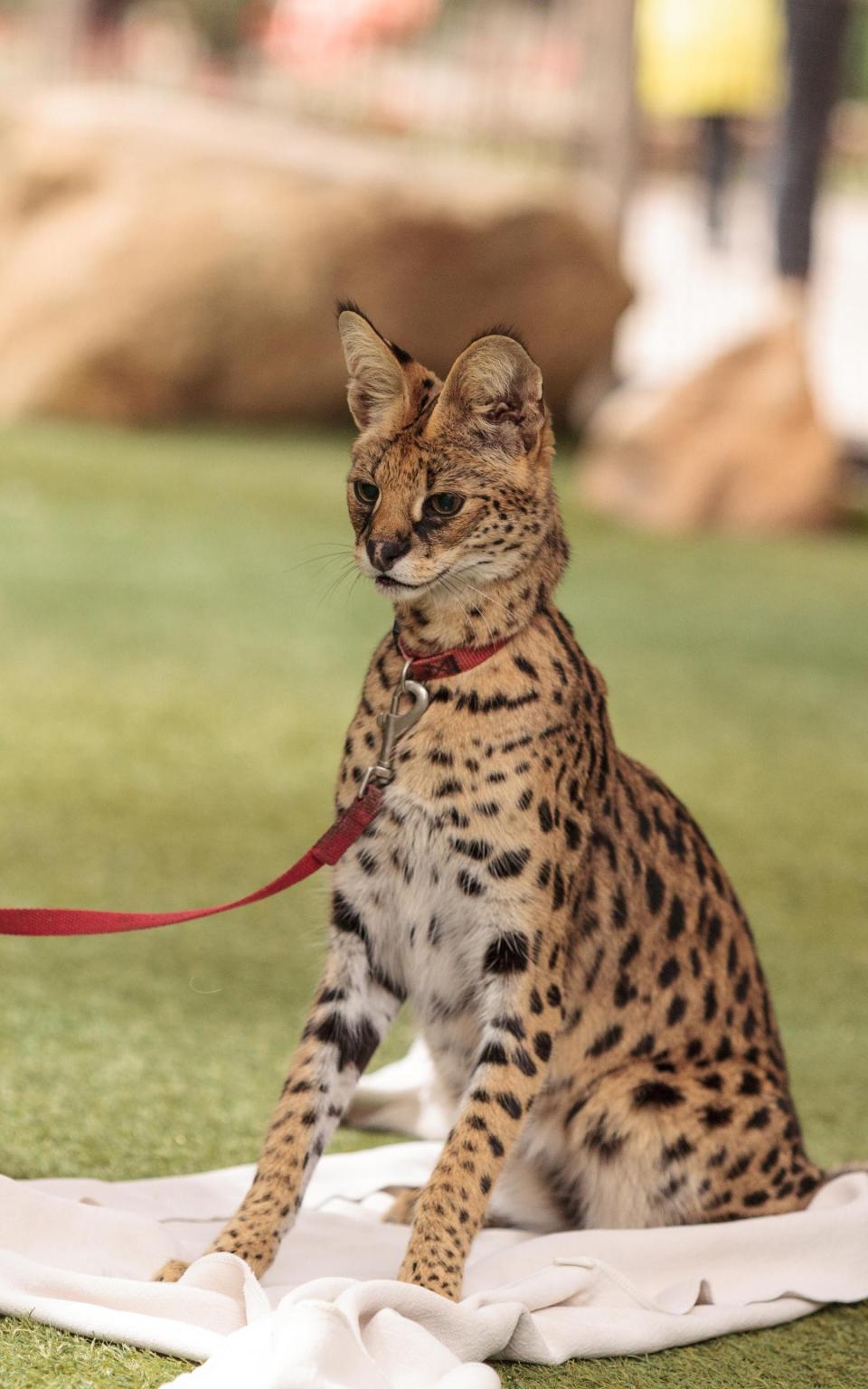
She breeds around three litters a year of anything from fourth generation to eighth generation Savannahs. F3s, as they’re known, have a Serval great-grandparent, making them 12.5 per cent wild cat.
There are no figures on the total number of Savannah cats in the UK but local authorities have issued more than 250 licences for Servals or F1 Savannahs, according to Born Free, the animal welfare charity. “The trend for keeping them is being driven by aesthetics,” says Chris Draper, the charity’s head of animal welfare and captivity.
“People like the idea of having what could be a wild animal in their home,” says Briony Smith, head keeper at The Big Cat Sanctuary, near Ashford, Kent. She helps private collectors find suitable cats to acquire but warns prospective owners need to do their homework. “People think they are taking on a domestic cat, and that’s not what they are. Wilder behaviour traits are often closer to the surface. You get potentially very aggressive cats [doing things like] spraying, hissing and scratching.”

Dr Draper warns Savannah cats need “multitudes more space than an average house and garden would be able to provide”, adding: “That’s simply not achievable in a domestic house setting.” In addition, they are likely to be more territorial, putting other cats at risk, he says.
Cowling, who started her Savmania Cats business eight years ago, adds: “I advise people to really think it through [before buying one] as it is important Savannah cats have a secure home for life. Some do not like change and bond strongly to their owners.”
Justin Bieber bought his pair as tiny kittens, weeks ahead of his wedding last autumn to Hailey Baldwin Bieber, a model, paying $35,000 for the pair, according to reports. The feline duo feature in the couple’s Instagram accounts, with one also wandering into shot during a recent update in the couple’s reality show, The Biebers on Watch, which is streamed via Facebook.
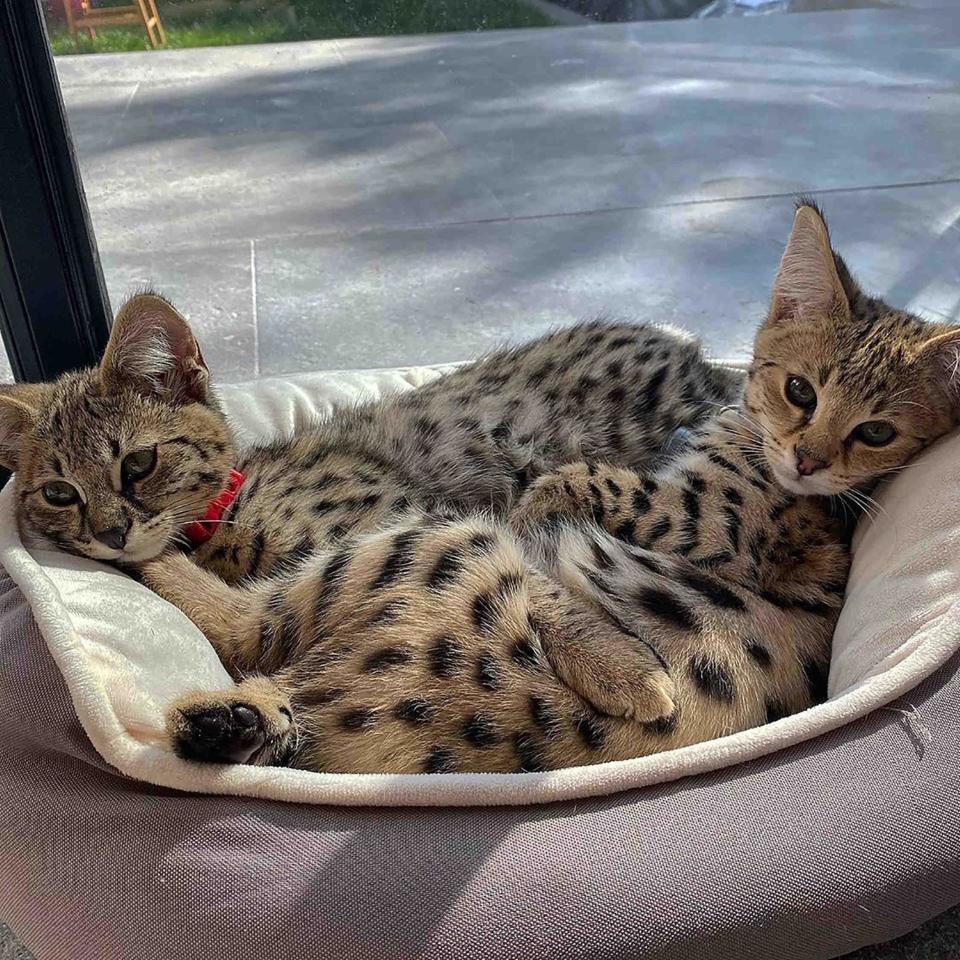
F2 Savannah kittens can cost around £5,500. Although The International Cat Association, which is based in Texas, accepted the Savannah as a new registered breed in 2001, its British equivalent, the GCCF, won’t register the breed because it is controversial. They require a mainly raw diet, and plenty of enclosed outdoor space: a grown Savannah can leap 2.5m from squatting. “I advise people to have an enclosure off the back of their house for fresh air and to prevent escapes,” says Cowling.
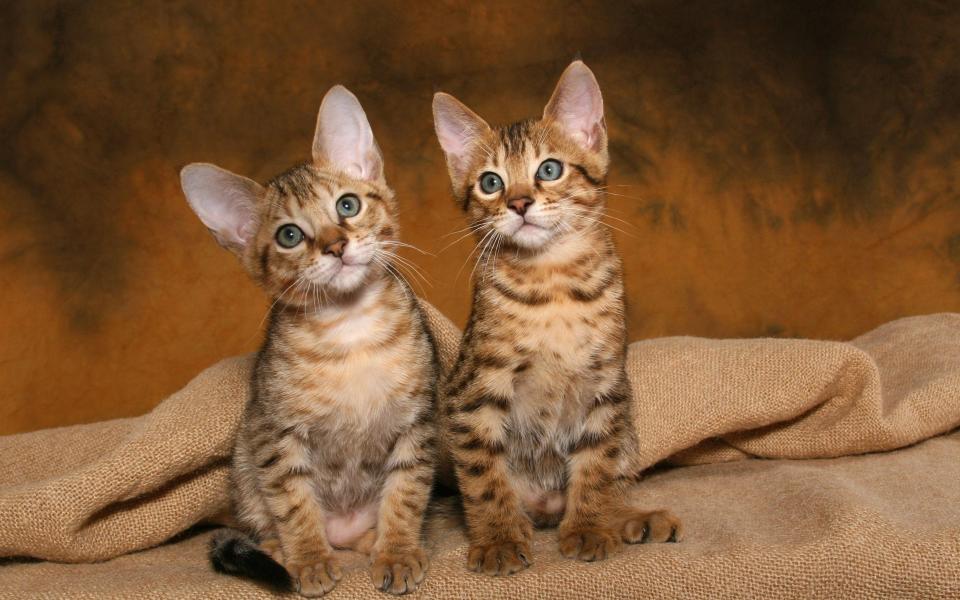
“If people are going to get one, they need to make sure they’re willing to put the time and effort in,” says Daniel Cummings, the Cat Protection’s behaviour officer. “They need to play with them three or four times a day, plus provide a feeding enrichment tool [that mimics eating in the wild]. Don’t just get them because they look cute.”
Animal charities worry people aren’t always committed to over-demanding pets, getting sick of the hassle and expense. Even private zookeepers express concern about animals under their charge. “Zoos are always a little sad, and mine was no different,” one says. “They are collections of broken lives. [In the zoo I looked after there] was a Leopardus tigrinus (the most beautiful cats of all) several monkeys and an eagle."
Sign up for the Telegraph Luxury newsletter for your weekly dose of exquisite taste and expert opinion.

